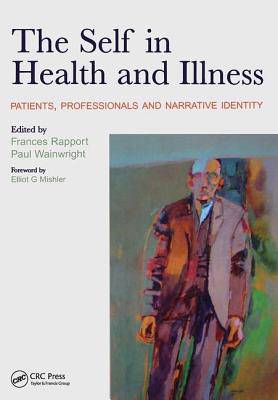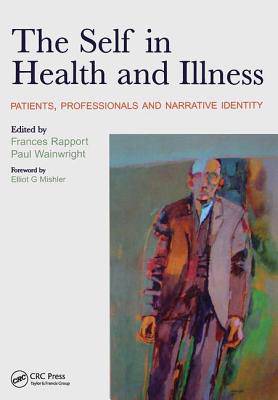
- Afhalen na 1 uur in een winkel met voorraad
- Gratis thuislevering in België vanaf € 30
- Ruim aanbod met 7 miljoen producten
- Afhalen na 1 uur in een winkel met voorraad
- Gratis thuislevering in België vanaf € 30
- Ruim aanbod met 7 miljoen producten
Zoeken
The Self in Health and Illness
Patients, Professionals and Narrative Identity
Frances Rapport, Paul Wainwright
Paperback | Engels
€ 51,45
+ 102 punten
Omschrijving
This book contains a foreword by Elliot G Mishler - professor of Social Psychology, Department of Psychiatry, Harvard Medical School. Patients' views of their identity change with illness, as do health professionals' views of them. This book discusses how and why this happens, and examines how more awareness of this phenomenon can lead to better care. Providing examples from diverse clinical settings, "The Self in Health and Illness" brings together writers from a range of backgrounds including health science, anthropology, sociology, psychology, nursing, medical ethics and healthcare. It considers the narrative self (or constructions of identity) and its place within healthcare and the medical humanities, and assists in clarifying the understanding of 'self' in the context of illness, health and medicine. An enlightening read for all doctors, especially those with an interest in medical humanities, this anthology is also invaluable for undergraduate and postgraduate students of medical humanities, researchers in health sciences and medical ethics. It will also be of great interest to medical anthropologists, psychologists, psychiatrists and other healthcare professionals. 'If you ask people questions about their lives they tell stories that express some version of "who" they are. Within the healthcare field, narrative researchers from various health professions and social science disciplines have been particularly interested in the potential impact of disability and illness on patient identities. What we find here is an array of quite systematic approaches to the complexities with which people narrate, perform, and possibly transform their identities through their stories. This is a serious undertaking and the editors and authors of these papers treat it with deep respect for our common struggle to make sense of our lives by achieving identities we can live with.' - Elliot G Mishler, in the Foreword.
Specificaties
Betrokkenen
- Auteur(s):
- Uitgeverij:
Inhoud
- Aantal bladzijden:
- 150
- Taal:
- Engels
Eigenschappen
- Productcode (EAN):
- 9781846191121
- Verschijningsdatum:
- 31/08/2006
- Uitvoering:
- Paperback
- Formaat:
- Trade paperback (VS)
- Afmetingen:
- 170 mm x 245 mm
- Gewicht:
- 339 g

Alleen bij Standaard Boekhandel
+ 102 punten op je klantenkaart van Standaard Boekhandel
Beoordelingen
We publiceren alleen reviews die voldoen aan de voorwaarden voor reviews. Bekijk onze voorwaarden voor reviews.











